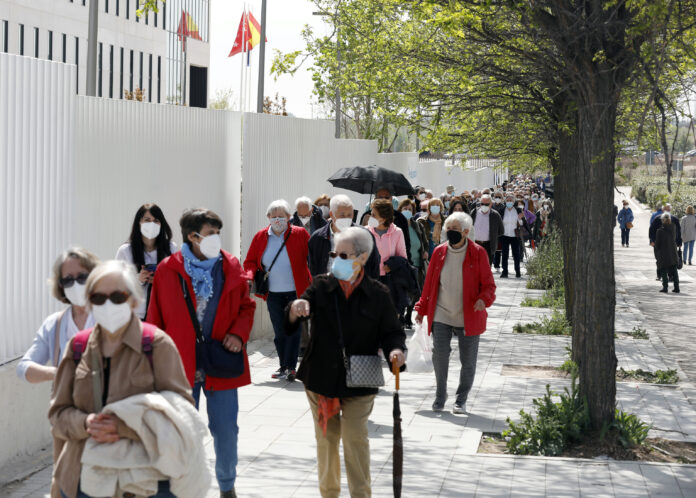The Constitutional Court has annulled the legal reform approved by the Government during the pandemic so that the High Courts of Justice would be the bodies that had to endorse the health measures adopted by the regional governments to deal with the Covid-19 crisis.
Specifically, the Plenary has considered the question of unconstitutionality raised by the Contentious-administrative Chamber of the Superior Court of Justice of Aragon in relation to article 10.8 of the Law of the contentious-administrative jurisdiction, drafted by the second final provision of Law 3/2020, of September 18, on procedural and organizational measures to deal with the coronavirus in the field of the Administration of Justice, declaring said precept unconstitutional and null.
The annulled precept attributed to the Contentious-administrative Chambers of the Superior Courts of Justice competence for the authorization or judicial ratification of the measures adopted in accordance with the health legislation that the regional health authorities (or, where appropriate, local) considered urgent and necessary for the protection of public health and that imply the limitation or restriction of fundamental rights, when their recipients are not individually identified.
The rule, which emerged in the context of measures approved to deal with the risks arising from the Covid-19 pandemic after the end of the first state of alarm, reflected the decision of the state legislator to submit to judicial authorization the provisions of the regional governments in those that adopt general measures (that is, whose recipients are not individually identified) aimed at protecting public health, which imply deprivation or restriction of fundamental rights.
With this, the legislator opted for the solution that all general health measures that could interfere with a fundamental right should have the intervention of the will of two powers, the executive and the judiciary, for their entry into force and application. , in such a way that the judicial authorization was established as a necessary condition to grant effectiveness to these general provisions in matters of public health.
The ruling of the Constitutional Court that resolves the issue, with a presentation by Judge Enrique Arnaldo, after ruling out the admissibility obstacles alleged by the State attorney and the State Attorney General’s Office, appreciates that the questioned precept violates the constitutional principle of separation of powers, by attributing to the judicial bodies of the contentious-administrative order functions outside their constitutional role, undermining the regulatory power that the Constitution attributes to the executive power, without conditioning it on the complement or authorization of the judges or courts to enter into force and display effectiveness , sufficing for this the publication in the corresponding official newspaper.
The regulatory power is attributed by the Constitution (and by the Statutes of Autonomy, where appropriate) to the executive power in an exclusive and exclusive manner, so it is not possible for the legislator to convert it into a power shared with the judiciary, which This happens if the application of the regulations is subject to the prior requirement of judicial authorization. The judiciary is not co-ruler or co-participant in the exercise of regulatory power.
In short, the ruling appreciates that the judicial authorization of the general health measures provided for in the questioned precept, which is also not supported by any substantive law, causes a reprehensible confusion between the functions of the executive power and those of the courts of law. justice, which undermines both the regulatory power and the independence and reservation of jurisdiction of the judiciary, thus contradicting the constitutional principle of separation of powers, inherent to the social and democratic State of Law.
The Constitutional also believes that this legal modification is contrary to the Magna Carta since it breaks, as well as the constitutional principles of publicity of the norms and legal certainty, since the judicial resolutions that authorize these general provisions in health matters are not published in the corresponding official newspaper, which makes it difficult for recipients to know the restrictive or limiting measures of fundamental rights to which they are subject as a result of the judicial authorization of these health regulations of necessity.
The magistrates María Luisa Balaguer and Inmaculada Montalbán and the magistrates Cándido Conde-Pumpido and Ramón Sáez have announced the formulation of a dissenting opinion on the understanding that the attribution to judges and courts of the function of approving health police measures of a general scope is expressly constitutional coverage in art. 117.4 of the Constitution, does not affect the separation of powers, or judicial independence or the effectiveness of regulatory power.
Conforms to The Trust Project criteria








